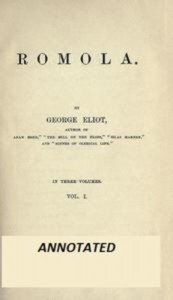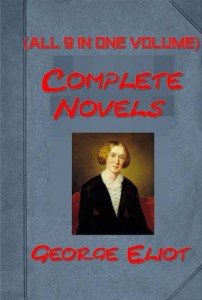Silas Marner is a novel by George Eliot. An outwardly simple tale of a reclusive weaver, in its strong realism it represents one of Eliot's most sophisticated treatments of her attitude to religion. In Silas Marner, Eliot combines symbolism with a historically precise setting to create a tale of love and hope. This novel explores the issues of redemptive love, the notion of community, the role of religion, and the status of the gentry and family. While religion and religious devotion play a strong part in this text, Eliot concerns herself with matters of ethics, and it is clear that for her, ethics exist apart from religion. On the surface, the book has a strong moral tract; the bad character, Dunstan Cass, gets his just deserts, while the pitiable character, Silas Marner, is ultimately richly rewarded, and his miserliness corrected. Eliot's text includes several pointed criticisms of organized religion, the role of the gentry, and the negative impacts of industrialisation.
Silas marner
Sobre
Talvez você seja redirecionado para outro site










